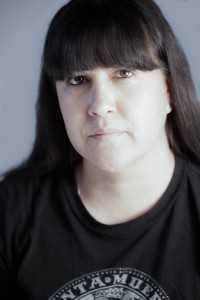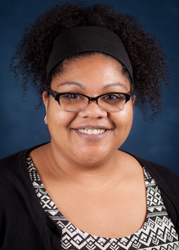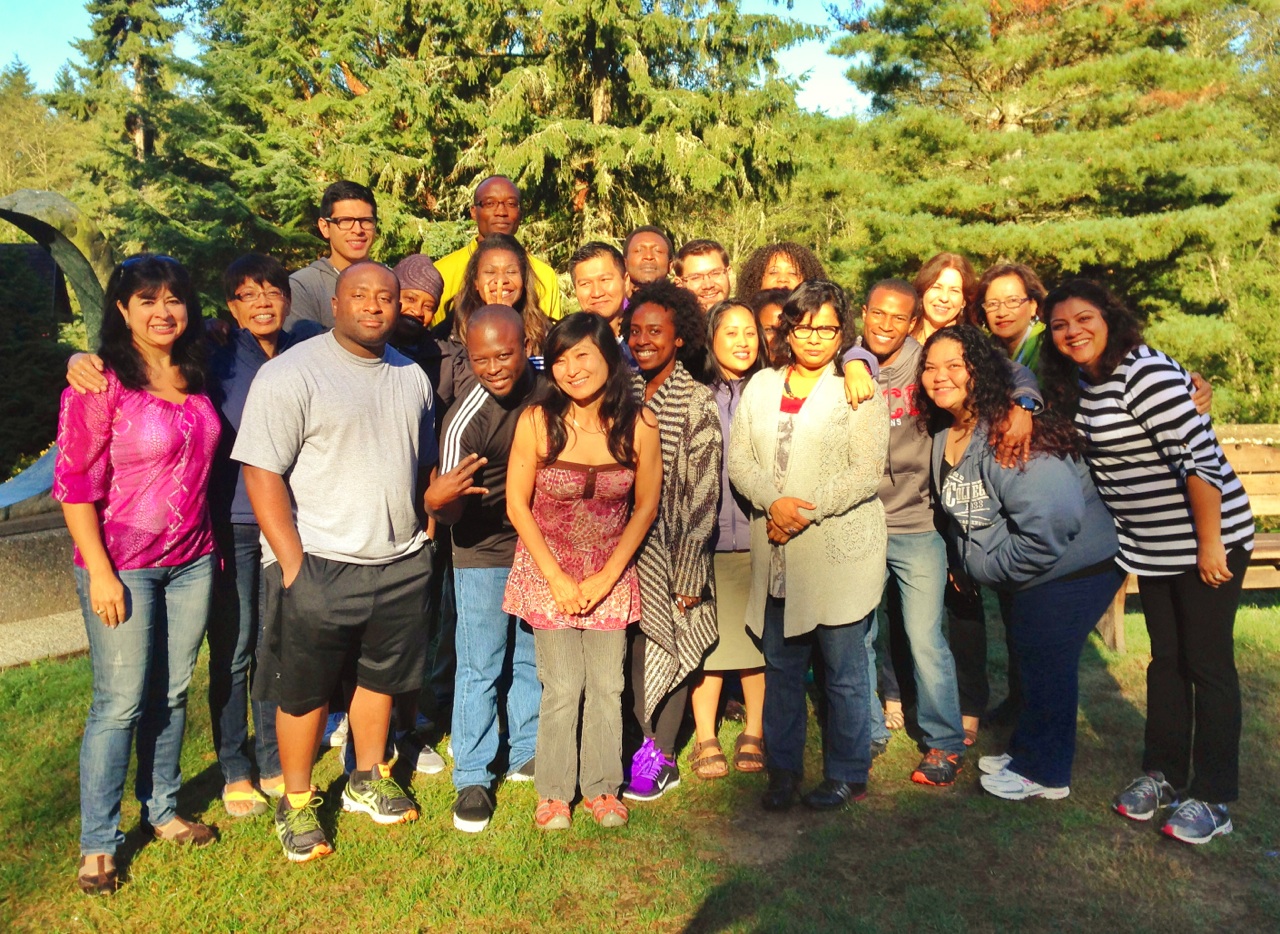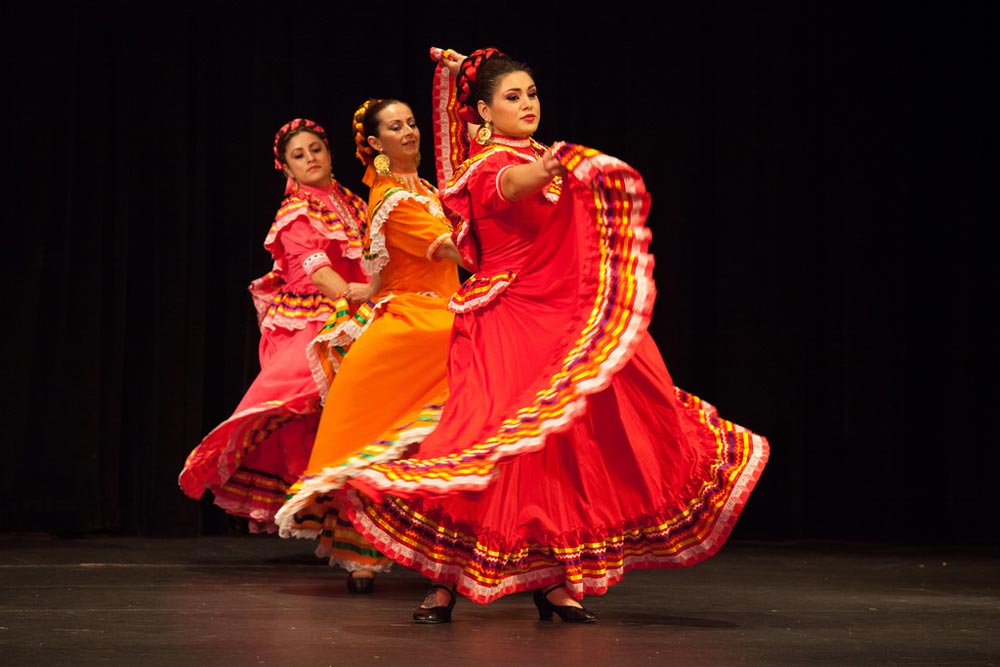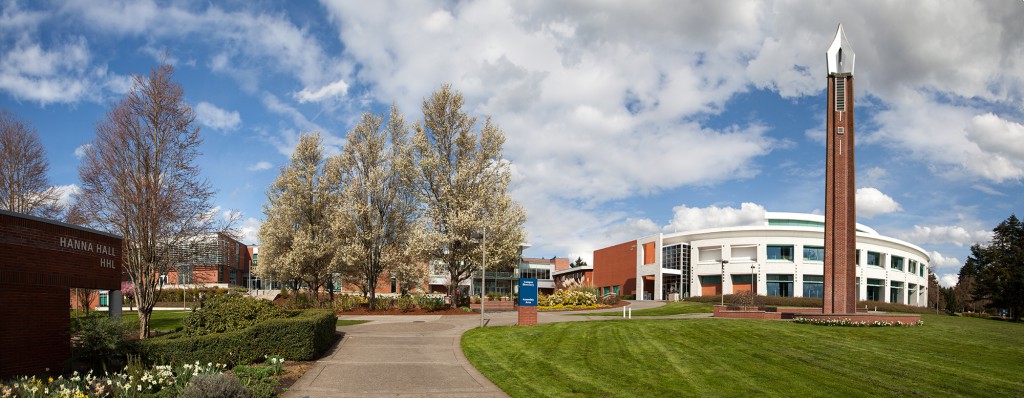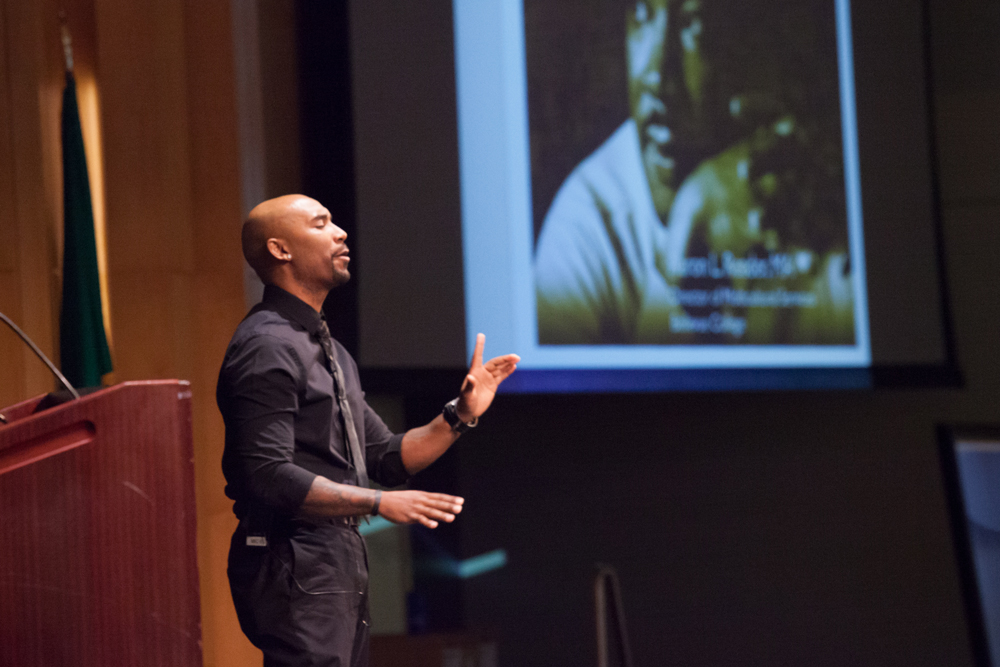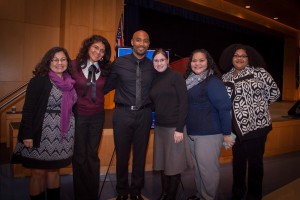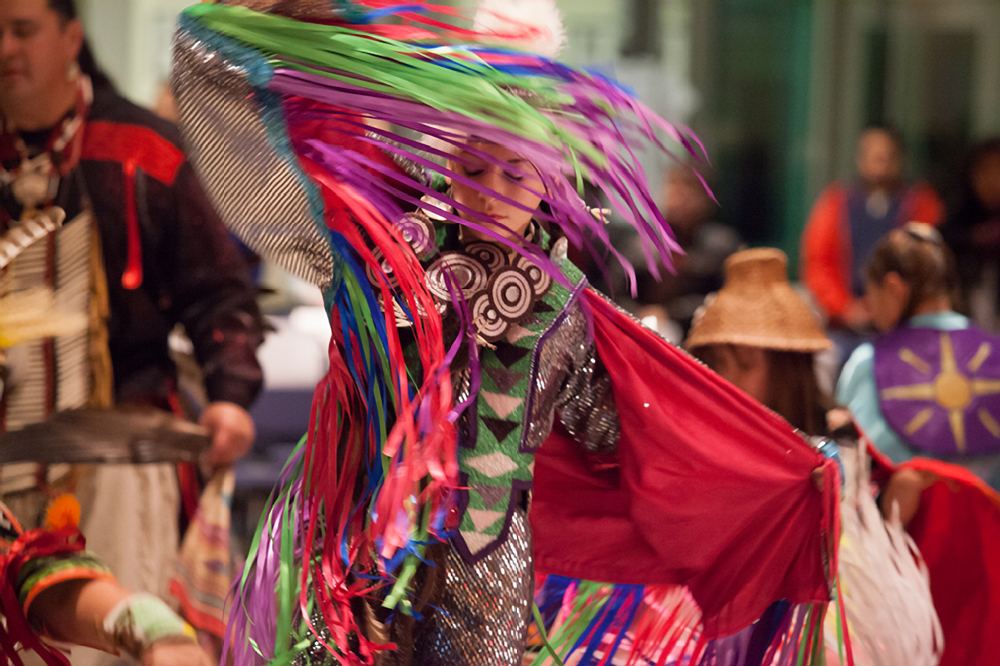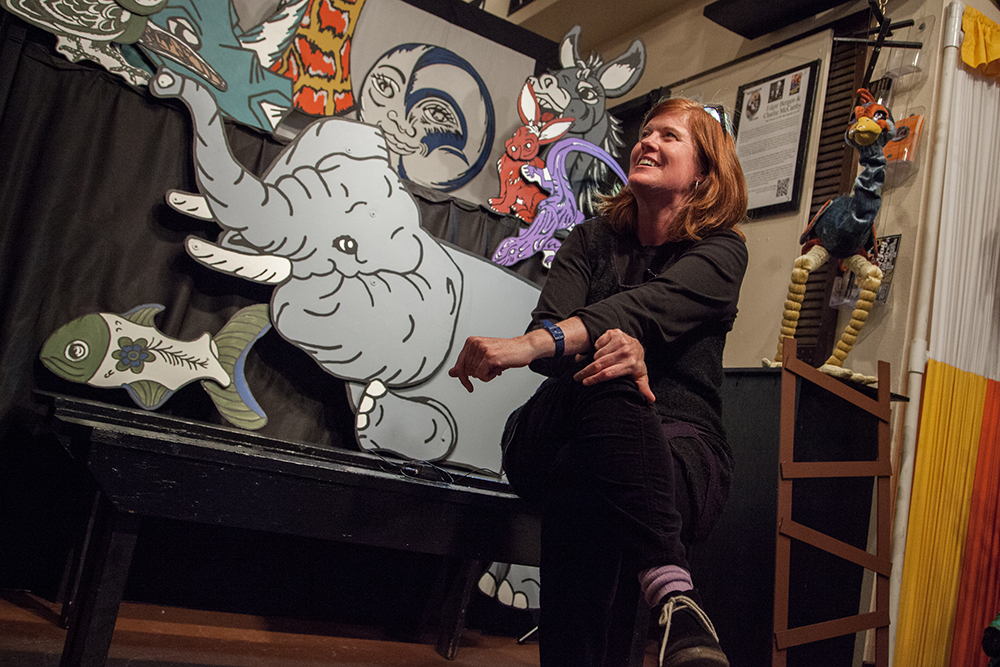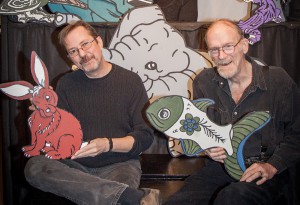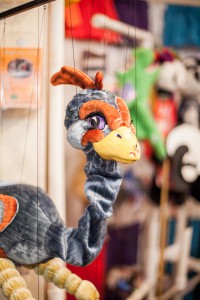Native Voices come to Clark
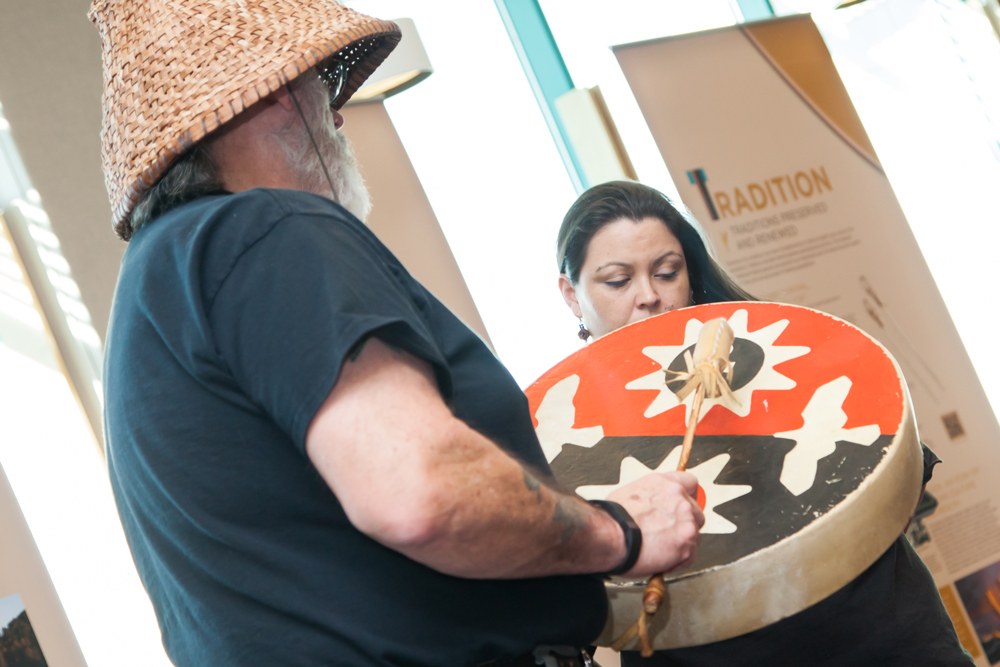
Chinook tribal elder Sam Robinson and Clark student Channa Smith perform a blessing song to welcome the Native Voices exhibition to Clark College.
On February 9, Cannell Library was briefly filled with the sound of drumming and singing during the opening ceremony for “Native Voices,” a traveling exhibition examining Native American concepts of health and medicine that will be on display in the library through March 16.
“It’s an honor to be here today,” said Chinook tribal elder and Clark alumnus Sam Robinson before he began a blessing ceremony for the event. “There are a lot different kinds of healing among our people, and there’s a lot of healing needed in our community.”
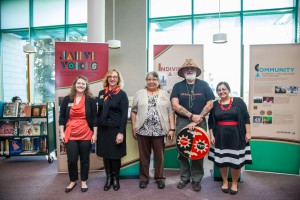
Librarian Laura Nagel, Dean of Libraries and Academic Success Services Michelle Bagley, Enrollment Services Program Coordinator Anna Schmasow, Chinook tribal elder and Clark alumnus Sam Robinson, and Interim Director of the Office of Diversity and Equity Felis Peralta.
“Native Voices” is produced by the National Library of Medicine in conjunction with the American Library Association. Clark College Libraries were selected as one of about 100 sites to host the exhibition during 2016-2020, and is the first to do so in the Pacific Northwest.
The exhibition examines concepts of health and medicine among contemporary American Indians, Alaska Natives, and Native Hawaiians. It features interviews and works from Native people living on reservations, in tribal villages, and in cities. Topics include: Native views of land, food, community, earth/nature, and spirituality as they relate to Native health; the relationship between traditional healing and Western medicine in Native communities; economic and cultural issues that affect the health of Native communities; efforts by Native communities to improve health conditions; and the role of Native Americans in military service and healing support for returning Native veterans.
Host sites are encouraged to incorporate additional materials and events into the exhibition, and Clark College Libraries has connected with several other departments and organizations—including the Chinook Nation, Clark County Historical Museum, the Clark College Office of Diversity and Equity, Archer Gallery, and Clark College Student Life—to create an impressive roster of events supporting the exhibition. These include:
- Tuesday, February 9, noon: Opening Ceremony featuring a blessing with drummers. Cannell Library
- Tuesday, February 16, 11:30 a.m.: Student of Color Luncheon with the artists of One November Morning, an exhibit about the Sand Creek Massacre hosted by the Clark County Historical Museum. Also featuring the awarding of the first Dreamcatcher Scholarship for Native American students at Clark College. PUB 161
- Thursday, February 17, 2:00 p.m.: “Earth-Based Mentoring through Grief,” a presentation from Tony Ten Fingers of the Oglala Lakota. GHL 213
- Friday, February 19, 2:00 p.m.: Documentary on One November Morning sponsored by the Native American Culture Club of Clark College. Foster Auditorium
- Wednesday, February 24, 12:15 p.m.: This week’s half-hour “30 Clicks” presentation covers the connections between wellness, illness, and cultural life. LIB 103
- Friday, March 4, 5:00 p.m.: Art Walk between Cannell Library, Archer Gallery, and Clark County Historical Museum
- Wednesday, March 9, noon: Closing ceremonies. Cannell Library
“We’ve mentioned over and over how well it fits together having all these events happening at the same time,” said librarian Laura Nagel, who helped to organize Clark’s hosting of Native Voices. “The stars really aligned for this.”
See more photos from the opening ceremony here.
Photos: Clark College/Jenny Shadley
